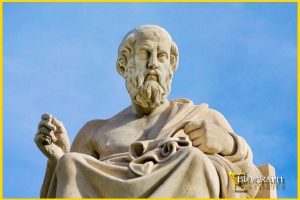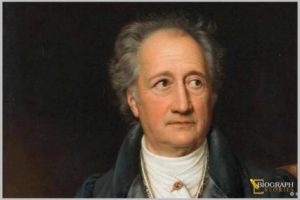
George Washington Quick Fact:
George Washington was an American political leader, military general, statesman, and Founding Father who served as the first president of the United States from 1789 to 1797. Previously, he led Patriot forces to victory in the nation’s War for Independence.
Born: February 22, 1732, Westmoreland County, Virginia, United States
Died: December 14, 1799, George Washington’s Mount Vernon, Mount Vernon, Virginia, United States
Height: 1.88 m
Presidential term: April 30, 1789 – March 4, 1797
Spouse: Martha Washington (m. 1759–1799)
Who Was George Washington?
George Washington widely known as Founding Father of the United States who led the Continental Army to victory in the Revolutionary War, was America’s first president and served as a general and commander-in-chief of the colonial armies during the American Revolutionary War. He was not only considered a military and revolutionary hero, but a man of great personal integrity, with a deep sense of duty, honor and patriotism. For over 200 years, Washington has been acclaimed as indispensable to the success of the Revolution and the birth of the nation.
Birth and early life
Washington was born on February 22, 1732 in Westmoreland County, Virginia. Being the eldest son of Augustine and Mary’s six children, he lived on Pope’s Creek in Westmoreland County by holding the status of being middle class. Later on, they held some distinction in England and was granted land by Henry VIII.
His father named Augustine Washington was an ambitious man who acquired land and slaves, built mills, and grew tobacco. In 1735, Augustine moved the family up the Potomac River to another Washington family home and moved again in 1738 to Ferry Farm on the Rappahannock River, opposite Fredericksburg, Virginia. In this place, he used to spend much of his childhood.
From age 7 to 15, Washington was being home educated and after that, he studied with the local church sexton and later a schoolmaster in practical math, geography, Latin and the English classics. At his young age, he had mastered the art of growing tobacco, stock raising and surveying.
In 1748, at the age 16, young Washington traveled with party to conduct survey on plotting land in Virginia’s western territory. The following year, he was appointed as official surveyor of Culpeper County.
In July 1752, he became the heir apparent of the Washington lands as his elder brother died that year at the age of 20.
Marriage, children and lifestyle
A month after leaving the army with his frustrating experience in his job, Washington married Martha Dandridge Custis who brought a considerable fortune to him with an 18,000-acre estate, from which Washington personally acquired 6,000 acres. The family was consist of Martha’s two young children named John and Martha.
By the 1790s, Washington kept over 300 slaves at Mount Vernon. He was said to dislike the institution of slavery, but accepted the fact that it was legal. Washington, in his will, ordered that all his slaves be granted their freedom upon the death of his wife Martha. He was a responsible landowner, breeding cattle and horses and tending to his fruit orchards.
Military Career
In the early 1750s, during the conflict between France and Britain, Washington showed the signs of natural leadership and became appointed as adjutant with a rank of major in the Virginia militia.
Washington was given the honorary rank of colonel and joined British General Edward Braddock’s army in Virginia in 1755 and became the commander of all Virginia troops at the only age of 23.
In 1758, Washington joined the duty of another expedition to capture Fort Duquesne where 14 of his man were killed while wounding. Washington retired from his Virginia regiment in December 1758.
Political Career
American Revolution
Though the British Proclamation Act of 1763 disturbed Washington and he opposed the Stamp Act of 1765, he did not take a leading role in the growing colonial resistance against the British until the widespread protest of the Townshend Acts in 1767.
In 1769, Washington proposed a resolution to the House of Burgesses calling for Virginia to boycott British goods until the Acts were repealed. Washington arranged a meeting in which the Fairfax Resolves were adopted by calling for the convening of the Continental Congress and the use of armed resistance as a last resort. He was selected as a delegate to the First Continental Congress in March 1775.
On June 15th of the same year, he was appointed Major General and Commander-in-Chief of the colonial forces against Great Britain. In the summer of 1777, he mounted an offensive against Philadelphia. Washington moved in his army to defend the city but was defeated at the Battle of Brandywine. Philadelphia fell two weeks later.
Revolutionary War Victory
After a few days of being defeated, Washington had no way of knowing the Yorktown victory would bring the war to a close. The British still had 26,000 troops occupying New York City. An obvious war was avoided when Washington convinced Congress to grant a five-year bonus for soldiers in March 1783. By November of that year, the British had evacuated New York City and other cities and the war was essentially over.
The Americans had won their independence on December 23, 1783. Soon after that, he resigned his commission as commander-in-chief of the army and returned to Mount Vernon.
For four years, Washington attempted to fulfill his dream of resuming life as a gentleman farmer and to give his much-neglected Mount Vernon plantation the care and attention it deserved.
Becoming the first ever President
In 1787, since independence, the young republic had been struggling under the Articles of Confederation. But when Shays’ Rebellion erupted in Massachusetts, he knew something needed to be done to improve the nation’s government. In 1786, Congress approved a convention to be held in Philadelphia to amend the Articles of Confederation.
At the Constitutional Convention, Washington was universally chosen as president. During the presidential election of 1789, he received a vote from every elector to the Electoral College, the only president in American history to be elected by unanimous approval. He took the oath of office at Federal Hall in New York City.
As the first president, Washington knew that his presidency would create a bench mark for all the future president to follow. For this reason, he carefully carried out all his responsibilities and duties of his office.
Accomplishments
He was the president for two terms where during his first term, Washington adopted a series of measures proposed by Treasury Secretary Hamilton to reduce the nation’s debt and place its finances on sound footing. His administration also established several peace treaties with Native American tribes and approved a bill establishing the nation’s capital in a permanent district along the Potomac River.
In 1791, Washington signed a bill authorizing Congress to place tax on distilled spirits. This decision caused huge protest and caused chaos in rural areas of Pennsylvania.
With blink of an eye, the strike formed into a full-scale disobedience of federal law known as the Whiskey Rebellion. Washington invoked the Militia Act of 1792 and summoned local militias from several states to put down the rebellion. This was also the only time a sitting U.S. president has led troops into battle.
Retirement
In March 1797, he turned over the government to John Adams and returned to Mount Vernon and determined to live his last years as a simple gentleman farmer.
How Did George Washington Die?
On December in 1799, after his dinner, he started to fall ill. The next morning, on December 13, he became increasingly hoarse and the illness progressed until he died late in the evening of December 14, 1799.








